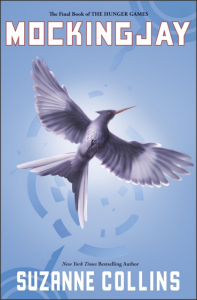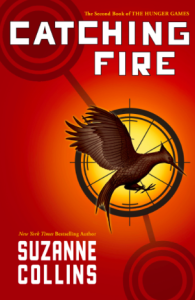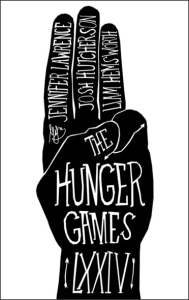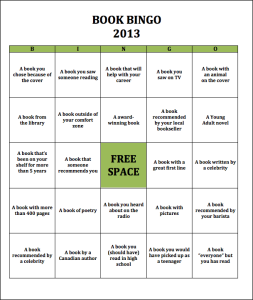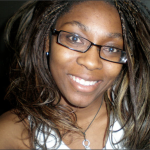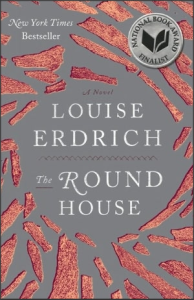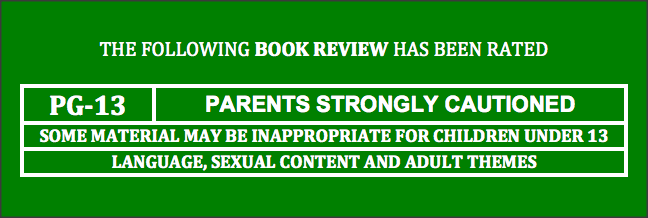
Snotty Literati Does YA: A Roundtable
What’s a roundtable? We’re sitting around a table, albeit a rectangular one. We read a bunch of “Young Adult” books, in order to discuss the chic genre, which seems to be today’s literary darling. Though Lara has read much more of the specifically designated YA catalog, Jennifer put in some hours in the YA section of the library. And we prepped for this column, everyone. We mean, our prepping was totally “sick” (as the YA of today say). Check it out:
What Lara Read
- Dash and Lily’s Book of Dares by Rachel Cohn and David Levithan
- If Jack’s In Love by Stephen Wetta
- The Perks of Being Wallflower by Stephen Chbosky
- Thirteen Reasons Why by Jay Asher
- When You Reach Me by Rebecca Stead
What Jennifer Read
- Stargirl by Jerry Spinelli
What We Both Read
- The Book Thief by Markus Zusak
- The Fault in Our Stars by John Green
- The Hunger Games by Suzanne Collins
- Miss Peregrine’s Home for Peculiar Children by Ransom Riggs
- Old-school, retro YA—The Diary of Anne Frank, Catcher, and everything by Judy Blume (the Mother of YA)
Jennifer: I’ve got tons to say, but we should start by defining YA. What is it?
Lara: I think it’s a lot of things, but what I like about it the most, is that it’s marketing to younger readers and creating a full canon of books—across genres—that kids are actually reading. The wild thing is that there is a lot of great YA out there that adults are gobbling up too.
Jennifer: Okay, I’m hearing the bias in your response. I’ll hold back for but a moment to say that YA literature is literature that may be for an audience between thirteen- and eighteen-years-old? Adolescents? Juveniles? Or it may be about protagonists between those ages? The books may be more plot-driven than your basic adult literary tome? They may be coming-of-age stories? Or the whole thing might be a great big marketing scheme, and each book needs to be judged independently of the contrived category into which it falls. What do you think?
Lara: It’s definitely a marketing strategy and it’s paying off. I also think YA is all the things you said it was. The downside of classifying these books is that there is a lot of great YA that adults are going to miss out on like The Book Thief because it’s shelved in the “Teen Fiction” section at the bookstore and sitting next to a bunch of other books with werewolves, vampires, and girls with electric red eyes on the covers. With any book category—Fiction, Non-Fiction, Memoir, Business, Self-Help, etc.—there’s the great, the good, the mediocre, and the horrible. YA covers all of those subcategories except, perhaps, Business.
I guess I don’t fully understand your disdain for the labeling. Wasn’t Judy Blume’s stuff in a category of “Teen Fiction” when we were growing up? Establishing categories admittedly helps people find books they might be interested in, and then will help to keep them away from others, naturally. I am more concerned that a book like The Book Thief (which I think everyone, every single one of us, should read) is categorized as YA simply because the protagonist is a young girl. The subject matter, of growing up and coming of age in Hitler’s Germany, is very adult.
Jennifer: All right, yes, the YA thing irks me—irrationally? I’m not sure. I do have reasons. But, first, two confessions (one is a bomb). I agree that The Book Thief is a must-read for everyone. I loved it. I’ll try to say more later, if you let me. The bomb: I don’t totally love Judy Blume [she writes, while ducking for cover].
I did love her! It’s in retrospect that I don’t. I know that, personally, I learned a lot from her books. A lot about sex. Questions were answered that I wasn’t asking yet. The stories were great. I ate them up. (Some are, I know, wonderful for kids.) That’s how I learned about Peeping Toms. And I still remember Deenie masturbating in the bathtub. Tastefully written, but I was like, Huh? What’s happening? I know that my own daughter’s reading ability is going to far exceed her maturity level at any moment.
Now, as a mom, I’m queasy about Blume. I do wholeheartedly believe parents are ultimately responsible for their own kids’ cultural consumption—but I’m a little uncomfortable with the idea of there being a YA “Stamp of Approval.” Who gets to speak authoritatively about what it means to be a teenager? That’s maybe my first problem with YA: the books are setting the parameters for what it means to be an adolescent.
Lara: Go back to my idea that there’s good and bad in all kinds of book categories. Judy Blume was good, because she wrote realistically about adolescents, feelings of inadequacy, hormones, periods, wet dreams, etc., and they made you feel like what you were experiencing was normal. And then there was bad, smutty stuff. I have never told my mom, but she bought me a book for Christmas one year when I was fourteen or fifteen called Beginner’s Love it was about first love lust and it was pretty sleazy. I learned what a blow job was from that book. She would have been mortified if she knew. Mom, don’t be mortified. I didn’t become a blow-jobbing hussy after reading it.
My point is, as a parent, yes, we can influence our children’s literary consumption. You have the ability to steer them in the direction of good YA that helps them identify with others like them or encourages their imagination and creative thinking or exposes them to people not like them. Think about John Green’s The Fault in Our Stars about two smart (precocious, even) teens with cancer who fall in love. When I was a teenager I didn’t know anyone who had cancer, let alone kids my age. Now, it’s an unfortunate reality. What a great thing to have a witty, well-written book that a teenager can read and connect with.
I guess what I am saying is get them reading the stuff you know is good. They will develop a strong reading compass and know the difference. Just like I knew that the BJ in the shower book was not good literature.
Jennifer: You just broke your mom’s heart. And I love how you mention “in the shower” in the latter reference, but not the former. (I will not allow you to edit that out!) Obviously, that made an impression on you.
And you reminded me of something. Wet dreams. I learned about those from Judy too.
Dear Reader: We’re aiming for candor here, so know that our intentions are noble.
Back to YA. Sure, you’re right. There’s good; there’s bad. Parents need to be parents, plain and simple. But consider this: you and I had good moms, and we still were exposed to bad stuff. I’ll be honest with you: I’m not fully monitoring my kids’ Magic Tree House reading habits. I’m not reading everything with them, or everything they do. I simply can’t. I rely a lot on other moms I trust. I’m into their school. I’m moderately knowledgeable about children’s lit. But still . . . .
What if, like many a mom, I relied on cultural definitions for age-appropriate content?
Take, for example, your beloved The Fault in Our Stars, about—pardon the flippancy—cancer-kids in love. Teenagers are in a unique, delicate spot. And, at least, YA folks recognize this. Teenagers are not adults; they’re just not. But they’re not children either. I remember my own teenybopper-hood, and there’s this part of me—a big part of me—that just wants to get through this stage, not revel in it, like these books do.
I was a good teenager. I didn’t do drugs. I didn’t sleep around. I wasn’t mean. I did well in school. I did listen to rock n’ roll. I did have mystifying long-term relationships with ghosts, otherwise known as rock singers or boy bands or Magnum P.I. And, most treacherous of all, I was enamored by the notion of romantic love (see my letter to my teen self, which spells out the absurdity of it all.) I’m still, if you really want to know, picking up the pieces of an immature heart at work in the wilds of romantic love. While body parts and sex positions were pretty much not a part of my mental landscape, hormones mixed with crazy notions of soul-mates, making love, and bowing down before the god of Losing Your Virginity were very much present. Virginity and the First Time? Wow.
Now, I have kids. And they’re girls. I quake in downright fear when I think of them going through the idealization and romanticism that nearly crushed me—and ruins many marriages, too. How can I spare them?
So when I read books like this, I want to, first, not revel in teenage shit and, second, stop Green from exercising his voice of authority. I believe, very much, in the power of Art—so I will absolutely not deny that Green and the other YA voices have authority. For me, it was rock n’ roll. I’m serious.
Green, in seemingly innocuous and gifted prose, provides a lesson on dying and the meaning of life. The two kids also have sex in here—and it’s not at all graphic or base, but it’s incidental. It’s barely mentioned. It’s a side-note, really. Life lessons, really, for the fragile.
Lara: OMG. You covered way too much in that last turn. LOL. How can I respond to it all? Okay, I will quit talking like a teenybopper.
Jennifer: Yeah, please do. That LOL Business is like calling on Satan or something.
Lara: First, the BJ references were absolutely intentional. I will not remove them in the final edit.
Second, we did have great mothers (I am blessed with a great stepmother, too). I was also a good kid. Probably a goody-goody even.
Jennifer: Yeah, dork-fest in my house.
Lara: There, seventh grade bullies P and C, I admit it. I was a goody-goody. These two girls cornered me after P.E. one day and here’s what went down:
The Bitches: “So, are you a goody-goody?”
Me: “No! Of course not.”
The Bitches: “Oh, so you’re a slut?”
Me: “Uh, no. I am not a slut.”
The Bitches: “Well, then you’re a goody-goody.”
Me: “Why are there only two choices?”
Jennifer: See, the goody-goody in you had to question their poor reasoning. As if there are only two choices.
Lara: And, of course I didn’t swear back then either, so I didn’t even refer to them as bitches. But that’s what they were. My biggest offense was my smart mouth and dragging my heels with chores. Like you, I came from a family of readers. Good readers who read good stuff. That makes a huge difference.
Coming from a family of readers meant my family was comfortable talking about things, even the uncomfortable things. In sixth grade, I had to address an envelope to myself from school for my mother and I to be invited to an evening showing of Menstruation and You, facilitated by a doctor my mother was sure she knew and who I begged and prayed in my brain that she not acknowledge during the meeting. Turned out he was the brother of the guy who delivered me. Kind of a neat, small world thing now, but potentially mortifying as a twelve-year old girl. And because I had already read Blume’s Are You There God? It’s Me Margaret and my mom and I had already read, together, Where Did I Come From? and What’s Happening to Me? additional conversations about awkward topics weren’t as awkward.
Jennifer: Oh, Dear Lord, we had Where Did I Come From?! That book scarred me! Now it’s my turn to apologize to my mom. Sorry, mom, but the book you read to me called Where Did I Come From? scarred me. I can still see those sperm swimming, swimming, swimming for dear life. Oh, they were swimming! When the naked people were hugging.
Lara: Ha! I loved Where Did I Come From? I still have both books and plan to read them with my son at the right time. But I can’t read everything my son reads either—and let’s face it, I won’t—but we can still stay ahead of the curve with book reviews, personal recommendations, the help of great librarians, etc. And at the end of the day, I think a book can help open dialogue with a child in a much better way than them hearing about some of these topics through their peers. They are going to learn about life at some point, you know, and I think good books, with good conversation, are a good and safe way to do that.
This has gotten really heavy—and not all YA is about how we should feel and what happens when our bodies change, our hormones are raging, and there’s a cute boy in Trigonometry. There’s fantasy stuff–like Miss Peregrine’s and The Hunger Games, which are great escapism for teens and adults. I liked them both and I recall you did too.
Jennifer: So you’re sick of the Conservative Mom Bit? Is that what you’re saying? Well, I can’t do it. Yeah, there are good and bad books—no argument there. (For the record, I got bored with Peregrine, and, yes, say what you will, Hunger was awesomeness.) But YA is the section; it’s more than the books.
The YA distinction is fairly new. I’m sorta guessing dates. Maybe Harry Potter, which might be for “middle readers,” kicked it off in 1997. Twilight came out in 2005. Hunger Games came out in 2008. YA got monstrously popular surrounding the publication of these books, maybe.
But maybe the truth is that—contrary to what we keep hearing (more kids are reading due to the fact that they can’t put these books down)—kids read more and they read better stuff back in the day.
Having skipped YA, I moved early into adult stuff. Truly, if any one book shaped—or misshaped—my notions of love (I know: I can’t stay away from this topic), it might have been (I’m not joking) Hemingway’s The Sun Also Rises. I read it when I was young, and I read it greedily. You might guess, if you know the book, I was utterly, impossibly, fucked in the head from a very young age. If anyone is looking for some of the roots of my choices, the scope of my doom, look there. I was slain when Brett asked, “Isn’t it pretty to think so?”
Lara: I haven’t read any Hemingway. Gasp! But I jumped to more adult books early on, too. Probably because of my good foundational start. I remember reading Herman Wouk’s Marjorie Morningstar my sixteenth summer. I think I also read Michener’s The Drifters. Both definitely covering more worldly topics and there my love affair with reading really took off.
Jennifer: Please go read Hemingway. So I moved from Choose Your Own Adventure to Huck Finn. Which would probably be considered YA today.
Lara: I haven’t read Huck Finn.
Jennifer: You’re killing me.
Lara: Or I don’t remember reading it. I think I would remember reading it. How did I get through Honors English classes without reading this stuff? I do remember things like Choose Your Own Adventure and From the Mixed Up Files of Mrs. Basil E. Frankweiler and The Island of the Blue Dolphins—all of which I have purchased for my son in anticipation of him reading them. Not yet, but he’s close.
Jennifer: Why do you think so many adults love YA?
Lara: I think YA books are really accessible. They cover a lot of universal experiences. I mean all adults have gone through puberty, have fallen in love, and have wanted to escape. I think YA allows adult readers to reflect on times that maybe we never thought we would survive but, of course, we did. Adolescence is a distinct period of time when everything is hyperbolically important, a time that no one—especially one’s parents—can understand. It’s a time of extreme egocentrism and yet it’s wholly terrifying for the majority of people, but we can’t really admit it until we have survived it.
I think my answer to your question may be as dramatic as we made all our adolescent issues back in the day. You can tell me to shut up.
Jennifer: No, I’m kinda with you. Okay, so I said I’d try to be systematic in my resistance to the YA phenomenon, and I’m rarely systematic about anything—except for how I make coffee. The YA books are setting the parameters for what it means to be an adolescent. This bugs me. Art is important. YA authors are culturally-transformative, authoritative, offering up life lessons, etceteras, etceteras. Kids are supposedly reading more—and somehow Harry Potter and text-messaging are supposedly responsible (I sound like an old lady!)—but they’re not reading better stuff at all. This bugs me.
Now, you bring up accessibility of universal truths. Good point. But I wonder, too, if we’re not talking accessibility but rather gross oversimplification. I have to admit that, after reading only a sampling of YA titles, I longed—truly, longed—for the messy, ugly complications of the adult world.
Why is that? I suppose I’ve got an answer that makes me look horrible. I think I feel alienated from the women who love YA in the same way I feel alienated from stay-at-home moms. I associated YA-lovin’ adult women with moms who have made their children’s lives their own in a comprehensive and exclusive way. I get kinda weird, wanting them to read books for “grown-ups.” I want to mess with their heads a little. It’s defensive, really. It’s just me getting defensive because I read big books with the f-word in it about horrible people doing horrible things. Those YA people just need to grow up! Mean, isn’t it?
Lara: You are oversimplifying, over-generalizing and over-everything this topic of YA. We read to learn something new, that we are not alone, or to be entertained. As much as we can learn from books, they will not and should not be the only things from which we (or our children) learn.
And I am going to just say it. Who gives a fuck what you read? Good for you that you read big books with big words. Who gives a shit about you watch? Good for you that it’s won an Emmy or an Oscar. Who cares that you listen to indie bands or eat at non-chain restaurants? The point is that this world is so big and the roundtable we sit at, this roundtable of life, is big enough for all of it. Every different single piece and part of it.
Jennifer: Did you just say “roundtable of life”? That’s it! I quit! No, I don’t quit; rather, you’re fired! So much for Snotty Literati!
Lara: I did! And I stand by it or sit by it, whichever is more appropriate. What is your take on the YA you have read? Let’s quickly rate the books we read for this Roundtable. That’s kind of one of the purposes of this column, you know.
Jennifer: Oh, okay. So, allow me to reiterate that I think this is a not-so-hot delineation of books. But I have nothing against the books the
mselves—unless I do.
The Book Thief by Markus Zusak: A+
He did not, incidentally, write this for a YA audience; rather, it was a marketing decision by booksellers. At first, I admit, I was put off by some of Zusak’s techniques—his captions, his sometimes ambiguously mysterious sentences, “Death” as narrator, etc. But when I stopped thinking of them as YA prompts or techniques, and just as Zusak’s techniques, I was fine with them. I didn’t like the feeling that, perhaps, these stylistic strokes were meant to pander to the reader, or help the reader grasp the complexities of the novel. But then I thought: this is just Zusak’s style! I’m happier thinking Zusak wrote the book he wanted to write, rather than thinking that Zusak wrote the book for young adults.
The Fault in Our Stars by John Green: C
See my review here: The Fault In Our Stars
The Hunger Games by Suzanne Collins: B+
Read SL’s take on The Hunger Games.
Miss Peregrine’s Home for Peculiar Children by Ransom Riggs. C
Well-written, but so-so. The premise is very interesting, but you lose me oftentimes with the supernatural.
Stargirl by Jerry Spinelli: B
I liked this one a lot, but I didn’t burn through it or anything.
Lara: Maybe you just need to forget about the YA category and just read it and decide if you like it. I think you want to not like it because it’s classified. Am I onto something? Hold that thought. Here are my thoughts:
The Book Thief by Markus Zusak: A+
We agree! This book is amazing, really. I wasn’t turned onto the whole Death as Narrator either, but it worked. I am amazed by an author who told me everything that was going to happen in the first chapter; yet, when I read the book, I was still shocked, stunned, enamored and tearful. Yes, it made me cry.
Dash and Lily’s Book of Dares by Rachel Cohn and David Levithan: B
Boy-meets-girl through a series of secret notes and shared love of books and music all across winter break. Precocious, yes. Sweet, yes. Entertaining, yes.
The Fault in Our Stars by John Green: B
A goof book on young love in the midst of a cancer diagnosis. Total downer, right? Wrong. A little precocious at times… but it really is a gem amidst all the vampire teen fiction. Plus, John’s a total cutie and major book nerd. SWOON!
The Hunger Games by Suzanne Collins: B
I ate this shit up like a plate of greasy plate of French fries and then we talked about it in our review: The Hunger Games.
If Jack’s In Love by Stephen Wetta: A
A boy-from-the-wrong-side-of-the-tracks-meets-girl story told against the backdrop of racism and classism in 1967’s West Virginia. A favorite of mine from 2012, here’s my review.
The Perks of Being Wallflower by Stephen Chbosky: B+
It’s a modern Catcher in the Rye, if you ask me, but I am sure Chbosky would hate that comparison, or maybe be slightly flattered. More modern, darker, but definitely sneaks and peeks of Holden Caulfield in there.
Thirteen Reasons Why by Jay Asher: B ish
Asher tackles a tough subject matter with teen suicide, and the actions that led up to the devastating end. I am not giving anything away here, you know the end at the beginning and I think it’s an important and timely book.
When You Reach Me by Rebecca Stead: A
This is more of a middle-grade book, a nice gateway to YA. I adored all of it. The premise is a twelve-year-old Miranda helping her mom prepare for a stint on the $25,000 Pyramid, who starts getting mysterious letters right about the time her best friend Sal begins to distance himself. It’s part mystery, part dramedy, and a must if you are a child of the seventies and eighties.
Jennifer: Before I go, check out this link from NPR, of the 100 Best-Ever Teen Novels. No, forget this stuff, get your teen, lock them in a room with The Adventures of Huckleberry Finn, To Kill A Mockingbird, and Catcher in the Rye.
Next time, it’s the original YA! A Tree Grows in Brooklyn!
_______________________________________________________________________
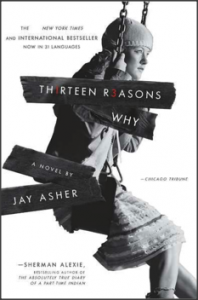 I actually picked up Thirteen Reasons Why after downloading the much talked about Tragedy Papers by Elizabeth Laban. In fact, the book’s description said, “… perfect for fans of Thirteen Reasons Why and Looking for Alaska”. And since I didn’t have either of those books, you can imagine what I did.
I actually picked up Thirteen Reasons Why after downloading the much talked about Tragedy Papers by Elizabeth Laban. In fact, the book’s description said, “… perfect for fans of Thirteen Reasons Why and Looking for Alaska”. And since I didn’t have either of those books, you can imagine what I did.
